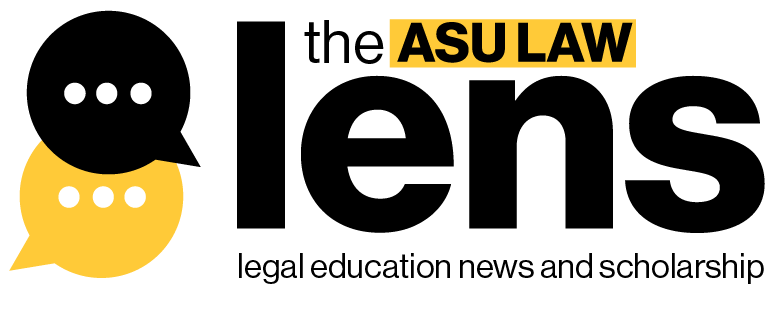
2 ASU Law professors achieve legal immortality
Some people wish they could achieve immortality or be remembered forever in some way. Now, two law professors have made that dream a reality through their work.
Two professors at the Sandra Day O’Connor College of Law at Arizona State University had their scholarship cited in two major U.S. Supreme Court decisions in 2024, achieving the ultimate legal immortality and cementing themselves as legal authorities.
Adam Chodorow is the Jack E. Brown Professor of Law at the Sandra Day O'Connor College of Law. His research and teaching interests lie in tax and business law. That research was cited in the high court’s unanimous decision in Connelly v. United States. The case involved how to value a corporation for estate tax purposes, including whether the proceeds of a life insurance policy taken out by a closely held corporation on a shareholder to facilitate the redemption of the shareholder’s stock be considered a corporate asset when calculating the value of the shareholder’s shares for purposes of the federal estate tax.
According to the Supreme Court, a corporation’s contractual obligation to redeem shares is not necessarily a liability that reduces a corporation’s value for purposes of the federal estate tax.
“Any valuation that takes the redemption obligation into account effectively values the corporation on a ‘post-redemption’ basis, i.e., after the decedent’s shares have been redeemed,” he wrote in “Valuing Corporations for Estate Tax Purposes” published in the Hastings Law Journal. Chodorow also submitted an amicus brief in the case.
Associate Teaching Professor Jessica Berch also had her scholarship cited during this Supreme Court term in Smith v. Arizona. The issue discussed in the case was whether the Confrontation Clause of the Sixth Amendment permits the prosecution in a criminal trial to present testimony by a substitute expert conveying the testimonial statements of a non-testifying forensic analyst.
“Throughout the 19th and into the 20th century, experts generally testified in the form of an opinion in response to a hypothetical question. An attorney would ask an expert to assume that certain facts were true and would then query whether a particular conclusion could conceivably follow,” Berch wrote in “Federal Rules of Evidence Manual.”
In a unanimous ruling, the Supreme Court vacated the Arizona Court of Appeals' judgment that the Confrontation Clause was not implicated and remanded the case for further proceedings.
Written by Lindsay Walker
Stephen Breyer, associate justice of the U.S. Supreme Court from 1994 to 2022, has been named the 2026 recipient of the O’Connor Justice Prize.
Related links
For the media
Legal studies research
Legal experts list
Media resources
Faculty directory
Staff directory
For all press and media inquiries, please contact: Kourtney Kelley, Assistant Director of Communications
[email protected]
480-965-6197
-
Newsroom homepage
-
LENS Newsletter
-
ASU Law Talks
